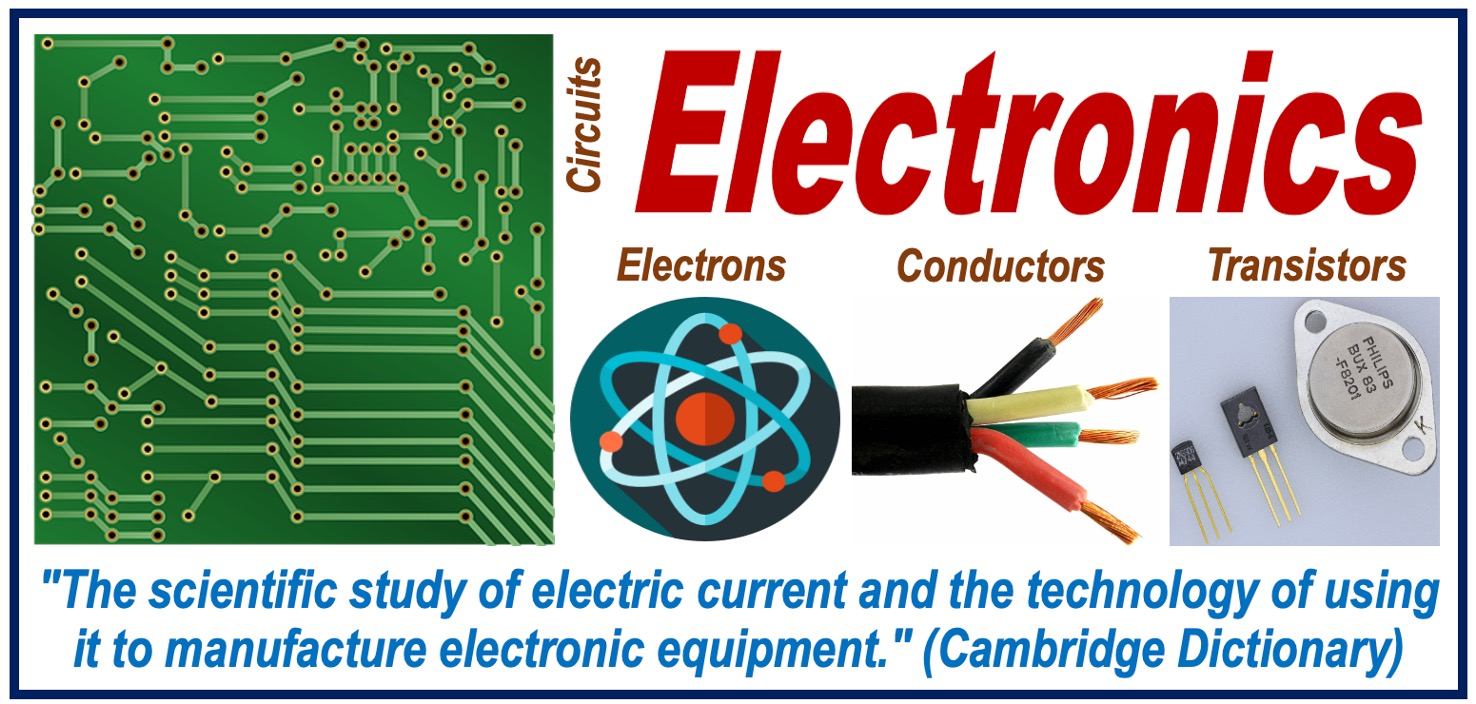What is Electronics? Definition and Examples
If you deal with the design, creation, or use of electronic devices, you are involved in electronics. Electronics is a branch of physics. At its most basic level, “electronics is the science that is concerned with the flow of electrons and their uses,” (kids.wordsmyth.net)
Electronic devices use electrical circuits to process data and carry out various tasks.

Electronics – basic components
-
Electrons & conductors
Electronics’ basic components are electrons and conductors. Electrons are subatomic negatively charged particles, while conductors consist of materials that allow the electrons to flow freely.
Electrons create an electrical current when they flow through a conductor. The current can be used to power electronic devices.
-
Circuits
The circuit is the heart of an electronic device. Circuits consist of resistors, capacitors, transistors, and conductors.
Resistors limit the flow of electrons, unlike conductors which allow them to flow freely. Transistors control the flow of electrons while capacitors store electrical energy.
Electronic devices
-
Computers
Today, the computer is the most common type of electronic device. It uses a CPU or central processing unit to process information. The CPU is the computer’s ‘brain’ – it uses a combination of electronic circuits to perform a wide range of tasks.
-
Other devices
Radios, digital cameras, televisions (TVs), and smartphones are other examples of electronic devices. TVs use either a liquid crystal display (LCD) or cathode-ray tube (CRT) to display moving images.
Radios use a combination of electronics to tune into different frequencies to broadcast plays, shows, news programs, music, etc,.
Smartphones, which serve as mini-computers, cameras, telephones, pocket watches, and personal organizers use electronics to take and store pictures plus dozens of other functions.
Consumer electronics
Electronic equipment that has been created for everyday use, i.e., for use at home, is called consumer electronics. We also refer to these products as home electronics.
Laptops/Computers, digital cameras, smartphones, TVs, video game consoles, Bluetooth speakers, and tablets are examples of consumer electronic devices.
Impact of electronics
Ever since the advent of electronics, how we live, work, listen to music, and communicate has changed dramatically. Today, thanks to electronics, we can access information from anywhere on the planet.
We can also communicate with friends, business associates, and other people worldwide. Without such technology, we would not be able to store so much information.
Electronics today and tomorrow
Innovative electronics and other tech play an increasingly critical role in our daily lives. One wonders what we will be capable of or what human life will be like in a couple of hundred years’ time thanks to electronics, artificial intelligence, quantum computing, and other modern and future technology.
Brief history
The term ‘electronics’ was first used in the English language in the early 1900s, according to the Oxford English Dictionary. It was used in 1902 in the context of electron phenomena, and the science and technology of electronic devices around 1910.

